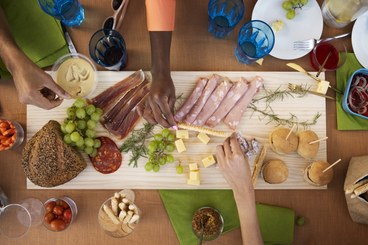
Food and Cultural Heritage: Practices, Memories, and Identities between Italy, Argentina, and Brazil
September - October 2025
As part of the PNRR M4, C1, Investment 3.4 "Transnational Educational Initiatives – TNE", supported by the Italian Ministry of University and Research (ex D.D. MUR no. 167/2023), this project explores the rich intersection of food and cultural heritage across continents.
"Food and Cultural Heritage: Practices, Memories, and Identities between Italy, Argentina, and Brazil"
(Project code: TNE23-00041 – CUP: J31I24000290006)
This international and interdisciplinary training initiative aims to examine how food serves as a vehicle for memory, identity, and cultural exchange between Europe and Latin America. Through language, culinary practices, and oral traditions, participants will investigate the connections between local knowledge, migration, colonial legacies, and ritual dimensions.
The course consists of a two-week programme, combining online learning with in-person workshops, and involves participants and instructors from diverse linguistic and academic backgrounds.
Course Structure
Course Structure
Week 1 – 29 September / 3 October 2025
The course begins with an introductory online phase of 15 hours, dedicated to intercomprehension among Romance languages (Italian, Spanish, and Portuguese): 10 hours with the instructors and 5 hours of guided self-learning.
Each day, for a duration of 2 hours, participants will be guided in developing strategies to read and understand texts in foreign languages, enhancing their written and oral comprehension skills, while also working on linguistic interproduction in a multilingual context. This will be followed by 1 hour of autonomous practice in pairs or small multilingual groups, according to the principles of tandem learning.
Week 2 – 6/10 October 2025
The programme continues with an intensive week in Buenos Aires, amounting to a total of 25 training hours. Mornings will be dedicated to the Anthropology of Food, with theoretical lectures and ethnographic case studies on local food knowledge, ritual practices, memory, migration, and the impact of colonial legacies.
Afternoons will be devoted to intercomprehension and multilingual interproduction workshops. The week will conclude with the final presentation of collaborative projects developed by the participants, in a multilingual and participatory format.
A detailed version of the programme will be provided to selected participants before the start of activities.
